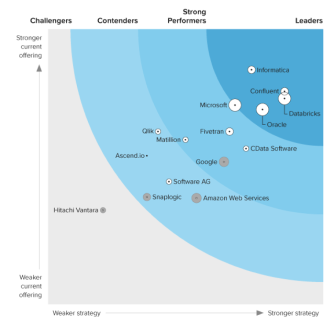Discover how a bimodal integration strategy can address the major data management challenges facing your organization today.
Get the Report →Automated Continuous Google Sheets Replication to Google BigQuery
Use CData Sync for automated, continuous, customizable Google Sheets replication to Google BigQuery.
Always-on applications rely on automatic failover capabilities and real-time data access. CData Sync integrates live Google Sheets data into your Google BigQuery instance, allowing you to consolidate all of your data into a single location for archiving, reporting, analytics, machine learning, artificial intelligence and more.
Configure Google BigQuery as a Replication Destination
Using CData Sync, you can replicate Google Sheets data to Google BigQuery. To add a replication destination, navigate to the Connections tab.
- Click Add Connection.
- Select Google BigQuery as a destination.
![Configure a Destination connection to Google BigQuery.]()
Enter the necessary connection properties. To connect to Google BigQuery, use OAuth authentication:
Authenticate with a User Account
In this OAuth flow, you can connect without setting any connection properties for your user credentials.
- Click Connect, and CData Sync opens the Google BigQuery OAuth endpoint.
- Log in and grant permissions to CData Sync.
- CData Sync then completes the OAuth process.
Authenticate with a Service Account
Service accounts have silent authentication, without user authentication in the browser. You can also use a service account to delegate enterprise-wide access scopes to CData Sync.
You need to create an OAuth application in this flow. See Creating a Custom OAuth App in the Getting Started section to create and authorize an app. You can then connect to Google BigQuery data that the service account has permission to access.
After setting the following connection properties, you are ready to connect:
- OAuthClientId: Set this to the Client ID in your app settings.
- OAuthClientSecret: Set this to the Client Secret in your app settings.
- OAuthJWTCertType: Set this to "PEMKEY_FILE".
- OAuthJWTCert: Set this to the path to the .pem file you generated.
- OAuthJWTCertPassword: Set this to the password of the .pem file.
- OAuthJWTCertSubject: Set this to "*" to pick the first certificate in the certificate store.
- OAuthJWTSubject: Set this to the email address of the user for whom the application is requesting delegate access. Note that delegate access must be granted by an administrator.
- DatasetId: Set this to the ID of the dataset you want to connect to.
- ProjectId: Set this to the ID of the project you want to connect to.
- Click Test Connection to ensure that the connection is configured properly.
![Configure a Destination connection.]()
- Click Save Changes.
Configure the Google Sheets Connection
You can configure a connection to Google Sheets from the Connections tab. To add a connection to your Google Sheets account, navigate to the Connections tab.
- Click Add Connection.
- Select a source (Google Sheets).
- Configure the connection properties.
You can connect to a spreadsheet by providing authentication to Google and then setting the Spreadsheet connection property to the name or feed link of the spreadsheet. If you want to view a list of information about the spreadsheets in your Google Drive, execute a query to the Spreadsheets view after you authenticate.
ClientLogin (username/password authentication) has been officially deprecated since April 20, 2012 and is now no longer available. Instead, use the OAuth 2.0 authentication standard. To access Google APIs on behalf on individual users, you can use the embedded credentials or you can register your own OAuth app.
OAuth also enables you to use a service account to connect on behalf of users in a Google Apps domain. To authenticate with a service account, you will need to register an application to obtain the OAuth JWT values.
See the Getting Started chapter in the help documentation to connect to Google Sheets from different types of accounts: Google accounts, Google Apps accounts, and accounts using two-step verification.
![Configure a Source connection (Salesforce is shown).]()
- Click Connect to ensure that the connection is configured properly.
- Click Save Changes.
Configure Replication Queries
CData Sync enables you to control replication with a point-and-click interface and with SQL queries. For each replication you wish to configure, navigate to the Jobs tab and click Add Job. Select the Source and Destination for your replication.
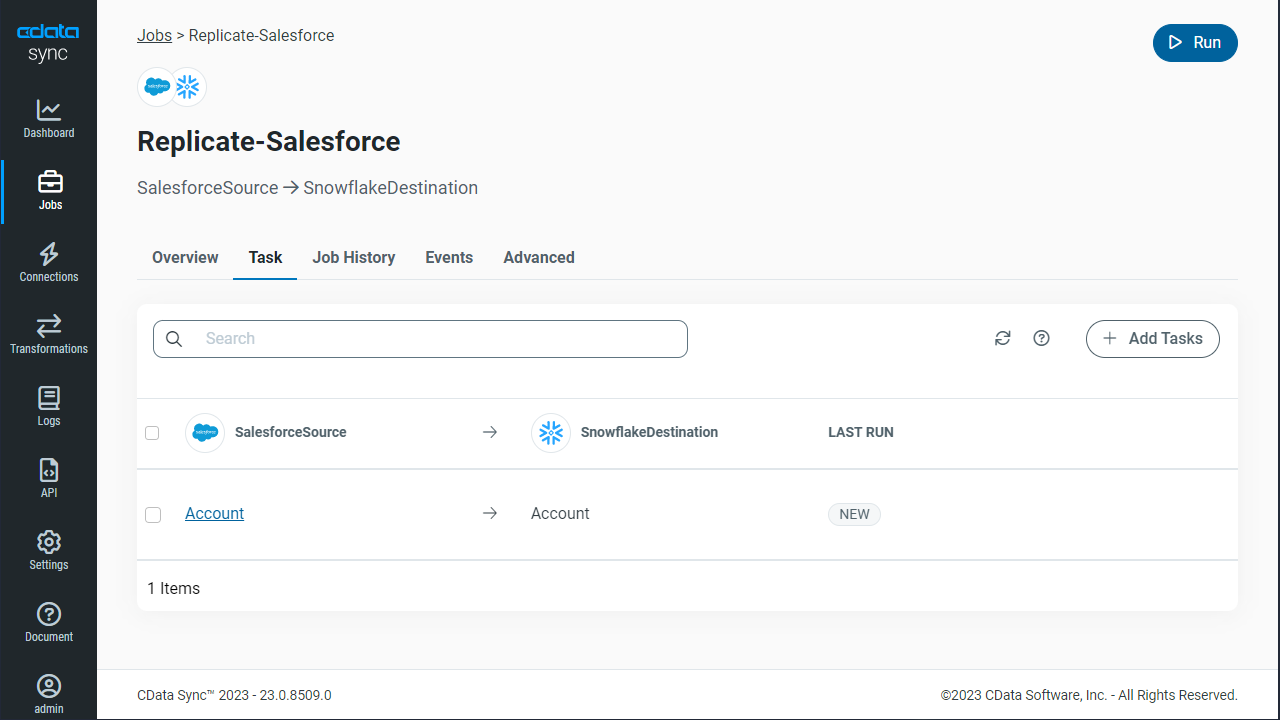
Replicate Entire Tables
To replicate an entire table, click Add Tables in the Tables section, choose the table(s) you wish to replicate, and click Add Selected Tables.
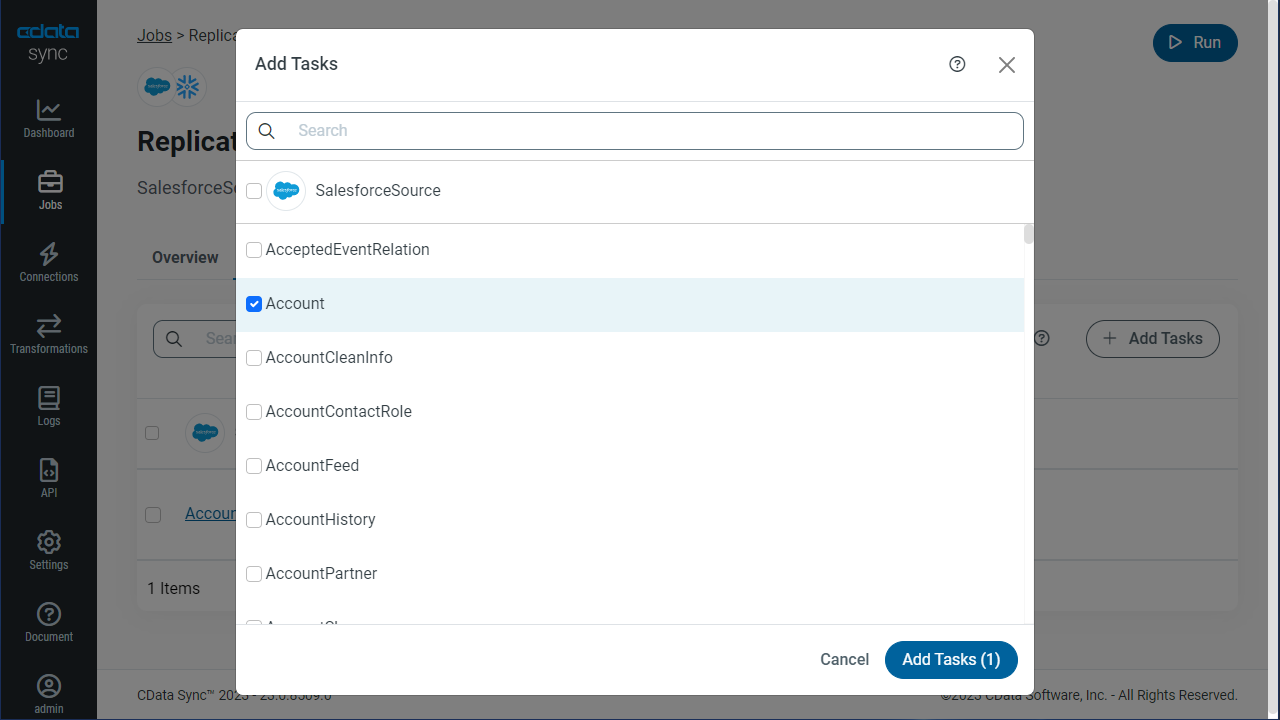
Customize Your Replication
You can use the Columns and Query tabs of a task to customize your replication. The Columns tab allows you to specify which columns to replicate, rename the columns at the destination, and even perform operations on the source data before replicating. The Query tab allows you to add filters, grouping, and sorting to the replication.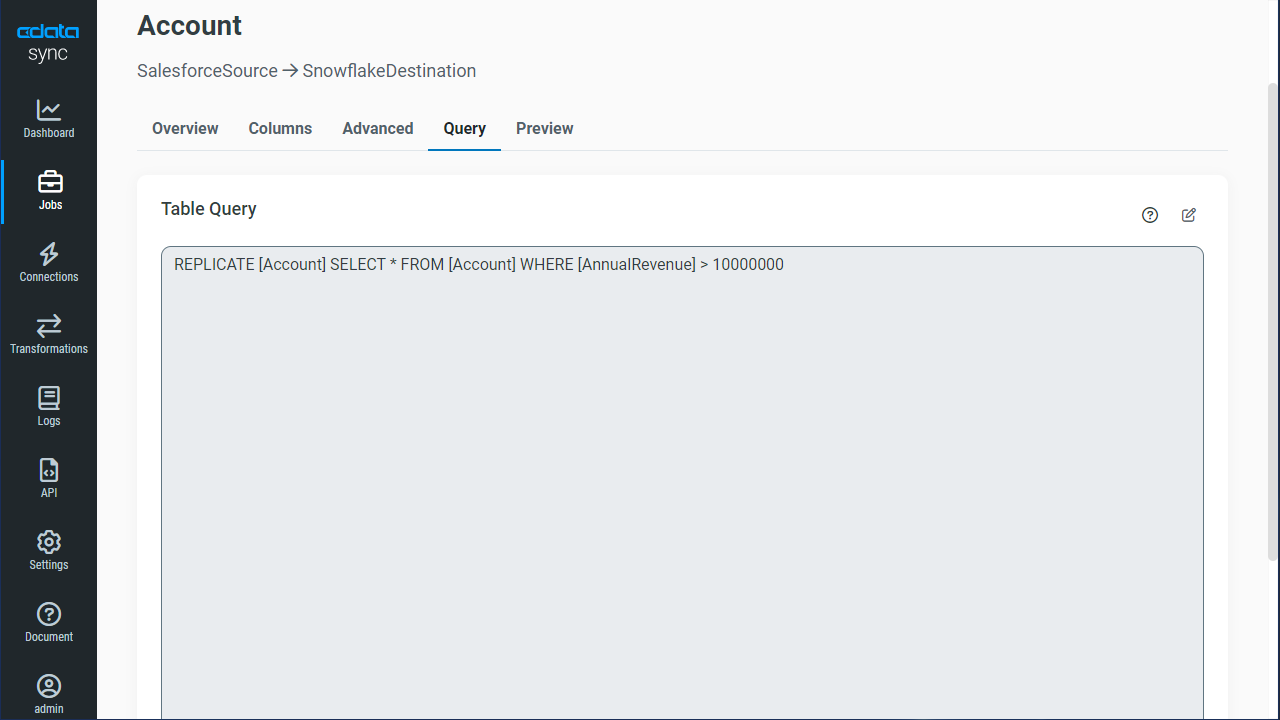
Schedule Your Replication
In the Schedule section, you can schedule a job to run automatically, configuring the job to run after specified intervals ranging from once every 10 minutes to once every month.
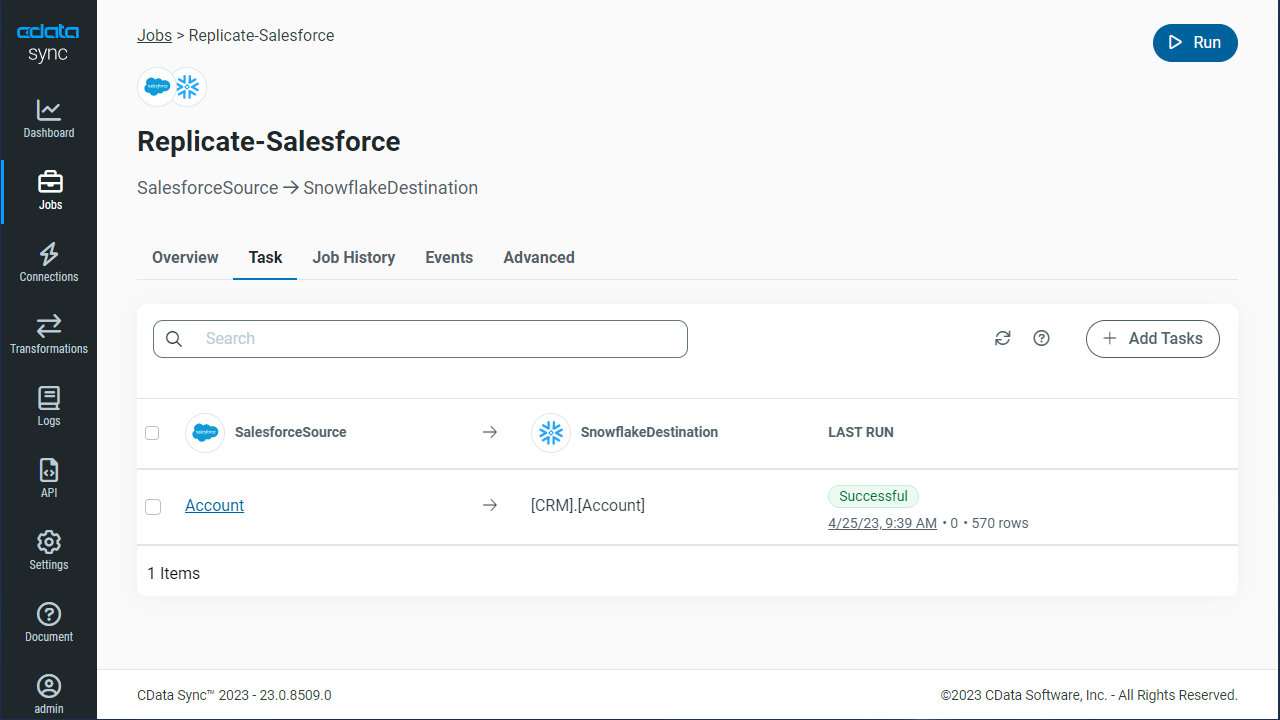
Once you have configured the replication job, click Save Changes. You can configure any number of jobs to manage the replication of your Google Sheets data to Google BigQuery.









